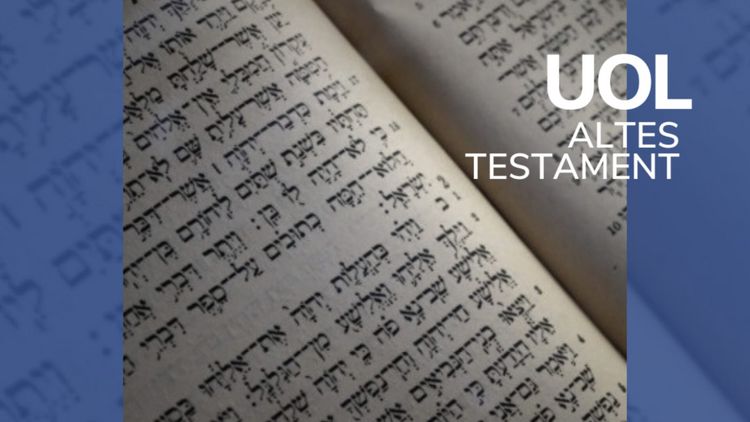Dr. Jordan Davis
Kontakt
Dr. theol. Jordan Davis
Lehrveranstaltungen
Wintersemester 2025 / 2026
Dr. Jordan Davis
Wissenschaftlicher Assistent im Alten Testament

Persönliches
- In Australien geboren
- In das Berufsleben als Ingenieur (B.Eng/B.Comp.Sci.) gestartet
Wissenschaftlicher Werdegang
- 2018–2021: Wissenschaftlicher Mitarbeiter bei Prof. Dr. Christian Frevel, Ruhr-Universität Bochum
- 2021–2022: Wissenschaftlicher Mitarbeiter bei Prof. Dr. Konrad Schmid, Universität Zürich
- Ab 2022: Wissenschaftlicher Mitarbeiter bei Prof. Dr. Benedikt Hensel, Carl von Ossietzky Universität Oldenburg
Abschlüsse
- Master of Divinity, Whitley College, University of Divinity in Melbourne
- 2021: Promotion bei Prof. Dr. Konrad Schmid, Universität Zürich:“The End of the Book of Numbers: On Pentateuchal Models and Compositional Issues” (summa cum laude)
Forschungsschwerpunkte
- Das Verständnis des kulturellen und ideologiegeschichtlichen Hintergrunds von biblischen Texten
- Fokus auf die Schnittmenge von Literaturgeschichte des Alten Testaments und biblischer Archäologie/Religionsgeschichte Israels
Aktuelle Forschung (Habilitation)
„The Book of Jeremiah as History and Story: Theological Reimagination in the Shadow of Empires and Exiles.“
Das Werk greift das seit langem beobachtete, aber selten gelöste Problem der vielfältigen Theologie des Buches auf und versucht, es vor dem Hintergrund der sich wandelnden sozialen Dynamik zu erklären, die durch geopolitische Ereignisse verursacht wurde. Um dies zu erreichen, ist eine solide historische Rekonstruktion erforderlich, die sich auf historische Quellen, archäologische Daten und andere Indikatoren aus dem alten Nahen Osten stützt (z.B. alte Prophezeiungen als politische Propaganda [Mari, Assyrer und andere solche Texte]). Vor diesem geopolitischen Hintergrund betont das Projekt die sich wandelnden Perspektiven auf das babylonische Exil, die erste Golah-Gemeinschaft und die Diaspora im gesamten Buch Jeremia.
Publikationen
Monographien
- (2022) Davis, Jordan. The End of the Book of Numbers: On Pentateuchal Models and Compositional Issues. ArchB 6. Tübingen: Mohr Siebeck (Dissertation)
- (in Vorbereitung) Davis, Jordan, The Book of Jeremiah as History and Story: Theological Reimagination in the Shadow of Empires and Exiles. (Habilitation)
Herausgaben
- (2025*) Hutzli, Jürg und Jordan Davis (Hg.). The Historical Location of P: Reconsidering the Priestly Texts in Light of Material Culture and Geographical Indications. ArchB. Tübingen: Mohr Siebeck.
- (2025) Davis, Jordan und Benedikt Hensel (Hg.). A Prophet to the Nations: Archaeological and Historical Perspectives on Jeremiah 46–51. VTOA 4. Göttingen: Vandenhoek & Ruprecht.
- (2024) Hensel, Benedikt (Hg., in Zusammenarbeit mit Jordan Davis). Transjordan and the Southern Levant: New Approaches Regarding the Iron Age and the Persian Period from Hebrew Bible Studies and Archaeology. ArchB 8. Tübingen: Mohr Siebeck.
- (in Vorbereitung; 2026) Brett, Mark, Rachelle Gilmour, Benedikt Hensel, Jordan Davis (Hg.). Politics and Compromise in the Hebrew Bible. FAT II. Tübingen: Mohr Siebeck.
Aufsätze
Im Druck:
- Hutzli, Jürg und Jordan Davis. „The Historical Location of the Priestly Writings: An Introduction.“ In: J. Hutzli/J. Davis (Hg.). The Historical Location of P: Reconsidering the Priestly Texts in Light of Material Culture and Geographical Indications. ArchB. Tübingen: Mohr Siebeck, 1–13. (11/2025*)
- Davis, Jordan. „A Priestly Source in Numbers?: Transjordan and the Priestly Ideology in Numbers 32.“ In: J. Hutzli/J. Davis (Hg.), The Historical Location of P: Reconsidering the Priestly Texts in Light of Material Culture and Geographical Indications. ArchB. Tübingen: Mohr Siebeck, 207–243. (11/2025*)
- Davis, Jordan, „Binding and Bridging in Numbers 1–10 and Numbers 26–36.“ In: C. Frevel/B. Kilchör/C.A. Evans (Hg.), The Book of Numbers: Composition, Reception, and Interpretation. FIOTL 202. Leiden: Brill. (02/2026*)
2025
- (2025) Davis, Jordan. „The Oracles against the Nations: An Introduction.“ In: J. Davis/B. Hensel (Hg.), A Prophet to the Nations: Archaeological and Historical Perspectives on Jeremiah 46–51. VTOA 4. Göttingen: Vandenhoek & Ruprecht, 1–10.
- (2025) Davis, Jordan. „Jeremiah, Qedar and the Queen of the Enclosure.“ In: J. Davis/B. Hensel (Hg.), A Prophet to the Nations: Archaeological and Historical Perspectives on Jeremiah 46–51. VTOA 4. Göttingen: Vandenhoek & Ruprecht, 193–228.
- (2025) Davis Jordan. „Sourced Authority: The Sihon Tradition and the Use of Citations to Provide External Justification.“ Biblische Notizen. Neue Folge 205: 97–112.
- (2025) Davis, Jordan. „The Festival Legislation in Numbers 28–29: A Further Step in Centralization?“ Vetus Testamentum: 1–15.
2024
- (2024) Davis, Jordan. „The Festival Legislation in Exodus and the Ideological Unity of »Books«.“ Zeitschrift für die Alttestamentliche Wissenschaft 136.1: 59–72.
- (2024) Davis, Jordan. „Sihon and the Problem of Israel in Transjordan.“ In: B. Hensel (Hg.), Transjordan and the Southern Levant: New Approaches Regarding the Iron Age and the Persian Period from Hebrew Bible Studies and Archaeology. ArchB 8. Mohr Siebeck: Tübingen, 129–162.
- (2024) Davis, Jordan. „Review of Storymaking, Textual Development, and Varying Cultic Centralizations: Gathering and Fitting Unhewn Stones, by Benjamin D. Giffone.“ Review of Biblical Literature 08: 1–4.
2021
- (2021) Davis, Jordan. „Mishma.“ Encyclopedia of the Bible and Its Reception 19: 376–377.
- (2021) Davis, Jordan. „Mithkah.“ Encyclopedia of the Bible and Its Reception 19: 460.

